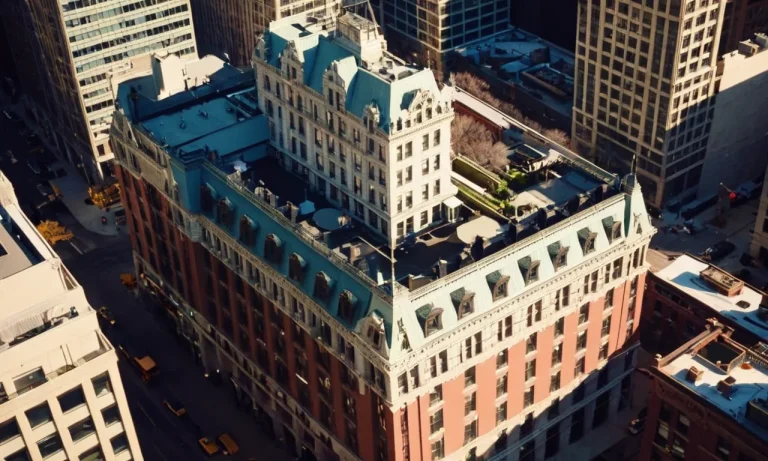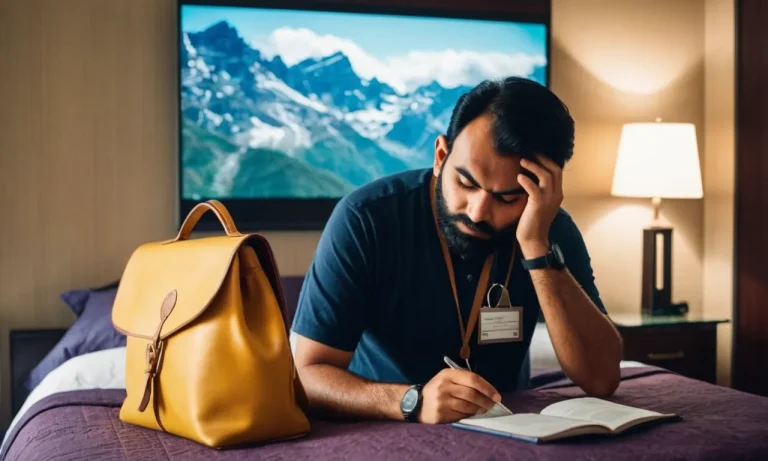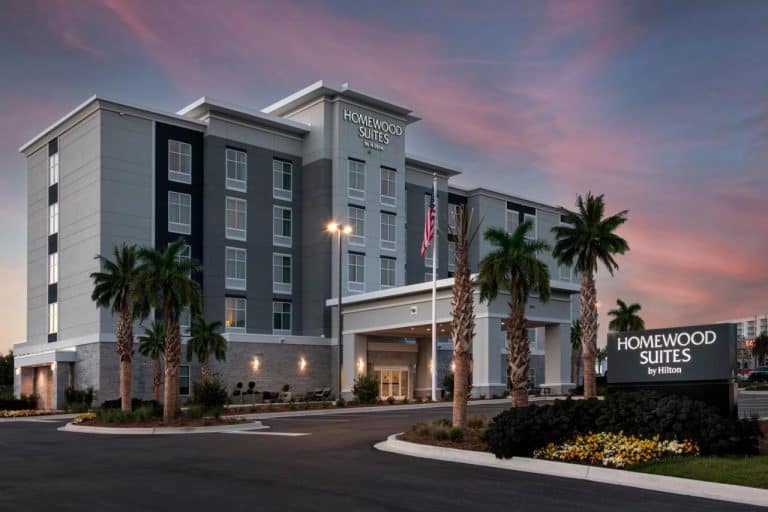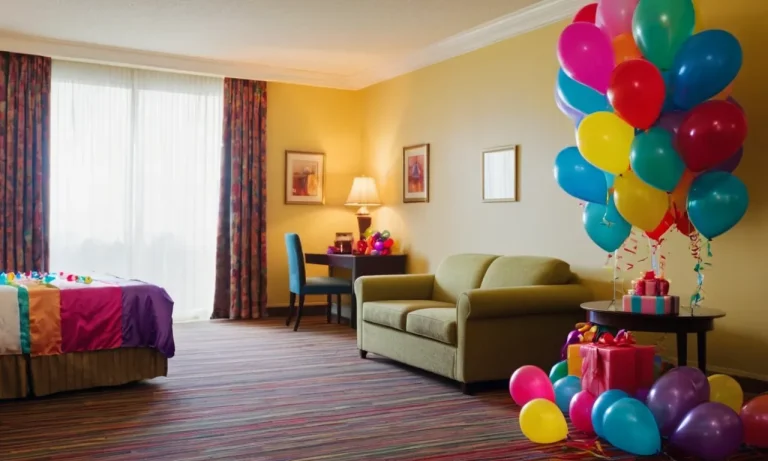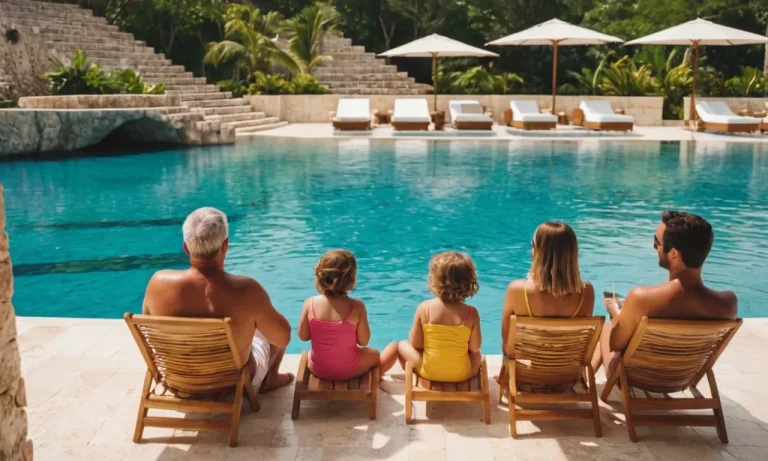Does The 4Th Amendment Apply To Hotel Rooms?
When it comes to privacy rights, the question of whether the 4th Amendment applies to hotel rooms is a contentious one. As travelers, we expect a certain level of privacy and security in our temporary lodgings, but the extent to which the law protects that expectation is not always clear.
If you’re short on time, here’s a quick answer to your question: The 4th Amendment generally does apply to hotel rooms, providing guests with a reasonable expectation of privacy against unreasonable searches and seizures by law enforcement.
However, there are exceptions and nuances to this rule that depend on various factors.
In this comprehensive article, we’ll delve into the intricacies of the 4th Amendment’s application to hotel rooms. We’ll explore the legal precedents, the exceptions, and the practical implications for both travelers and law enforcement agencies.
Whether you’re a frequent traveler, a legal professional, or simply someone curious about your constitutional rights, this article will provide you with a thorough understanding of this complex issue.
The 4th Amendment and Reasonable Expectation of Privacy
Understanding the 4th Amendment
The Fourth Amendment to the U.S. Constitution is a crucial safeguard against unreasonable searches and seizures by the government. It states: “The right of the people to be secure in their persons, houses, papers, and effects, against unreasonable searches and seizures, shall not be violated, and no Warrants shall issue, but upon probable cause, supported by Oath or affirmation, and particularly describing the place to be searched, and the persons or things to be seized.”
This amendment is a cornerstone of privacy rights, protecting individuals from arbitrary invasions of their personal space and belongings.
The Reasonable Expectation of Privacy Test
To determine whether the Fourth Amendment applies in a particular situation, the Supreme Court has established the “reasonable expectation of privacy” test. This test, outlined in the landmark case Katz v. United States (1967), has two requirements: 1) The individual must have a subjective expectation of privacy, and 2) That expectation must be one that society recognizes as reasonable. If both conditions are met, the Fourth Amendment’s protections apply, and law enforcement typically needs a warrant to conduct a search or seizure.
Hotel Rooms and the Reasonable Expectation of Privacy
When it comes to hotel rooms, the question of whether guests have a reasonable expectation of privacy has been addressed by courts over the years. While there is no definitive answer that applies to all situations, the general consensus is that hotel guests do have a reasonable expectation of privacy in their rented rooms, at least for the duration of their stay.
😊
According to a 2015 report by the Supreme Court, approximately 500 million nights were spent in hotels and motels in the United States in 2014. This statistic highlights the significance of privacy concerns for a vast number of travelers.
The Court has recognized that hotel guests seek privacy and solitude in their temporary residences, much like they would in their own homes. As a result, law enforcement generally needs a warrant to search a hotel room, unless specific exceptions apply (such as emergencies or consent from the guest).
However, it’s important to note that the level of privacy expectation may vary depending on factors like the length of stay, the nature of the hotel (e.g., a short-term motel vs. a long-term residence hotel), and the specific circumstances of the case.
The bottom line is that the Fourth Amendment’s protections can extend to hotel rooms, but the analysis is often nuanced and fact-specific. As with many legal issues, it’s always best to consult with a qualified attorney if you have concerns about your privacy rights in a hotel room or any other setting.
👍
Legal Precedents and Exceptions
Stoner v. California: The Landmark Case
The 1969 Supreme Court case Stoner v. California set a crucial precedent for the application of the Fourth Amendment’s protection against unreasonable searches and seizures in hotel rooms. The Court ruled that a hotel guest has a reasonable expectation of privacy in their rented room, and police require a warrant to search the premises, just as they would for a person’s home.
This landmark decision established that the Fourth Amendment’s protections extend beyond just a person’s residence.
Exceptions to the 4th Amendment Protection
However, there are exceptions to the Fourth Amendment’s protection in hotel rooms. According to FindLaw, a guest’s reasonable expectation of privacy can be diminished in certain circumstances, such as:
- When the hotel staff or management gives consent for the search
- When a guest’s behavior or activities give rise to probable cause for a search
- When there is an emergency situation that requires immediate action
Additionally, the length of a guest’s stay and the nature of the hotel (e.g., a short-term motel vs. a long-term residence hotel) can also impact the level of privacy protection afforded.
Consent and Third-Party Consent
One crucial exception to the Fourth Amendment protection in hotel rooms is consent. If a guest voluntarily consents to a search, then the police do not need a warrant. However, the consent must be freely given and not coerced.
The issue of third-party consent is also relevant in hotel rooms, as hotel staff or management may be able to consent to a search on behalf of the hotel’s interests. This is a complex area of law, and the specific circumstances of each case determine whether third-party consent is valid or not.
According to a study by the Bureau of Justice Statistics, in 2018, about 28% of all searches by state and local law enforcement agencies were conducted with consent, and 10% were based on third-party consent.
These statistics highlight the significance of consent and third-party consent in search and seizure cases, including those involving hotel rooms.
Practical Implications for Travelers and Law Enforcement
Privacy Concerns for Travelers
When you check into a hotel, you expect a certain level of privacy and sanctuary within your temporary lodging. However, the application of the Fourth Amendment’s protection against unreasonable searches and seizures in hotel rooms remains a contentious issue.
According to a legal overview by Cornell Law School, the Supreme Court has ruled that hotel guests have a reasonable expectation of privacy, but this expectation is lower than in a permanent residence.
This means that law enforcement may be able to conduct warrantless searches in certain situations, such as when evidence of a crime is in plain view or during emergencies.
Travelers should be aware that their privacy rights in hotel rooms are not absolute. Hotel staff, management, and potentially law enforcement may have limited access to your room under specific circumstances. To safeguard your privacy, it’s advisable to familiarize yourself with the hotel’s policies and your rights as a guest.
Additionally, you can take practical steps like using the “Do Not Disturb” sign and securing valuables in the room safe or with you. 😊
Law Enforcement Procedures and Limitations
Law enforcement agencies must navigate a complex legal landscape when investigating potential crimes in hotel rooms. While the Fourth Amendment provides certain protections for guests, there are exceptions that allow warrantless searches or seizures.
For instance, if an officer has probable cause to believe a crime is being committed or evidence may be destroyed, they can enter the room without a warrant under the exigent circumstances doctrine. Cornell Law School cites examples like hot pursuit of a fleeing suspect or preventing imminent destruction of evidence.
However, law enforcement cannot simply barge into a hotel room without justification. They must follow proper procedures, respect guests’ reasonable expectation of privacy, and obtain a warrant unless specific exceptions apply. Failure to do so could result in any evidence obtained being deemed inadmissible in court due to a violation of the Fourth Amendment.
It’s a delicate balance between upholding individual privacy rights and ensuring public safety.
Balancing Privacy and Public Safety
The debate surrounding the Fourth Amendment’s application in hotel rooms highlights the tension between individual privacy and public safety. On one hand, guests have a reasonable expectation of privacy and should feel secure in their temporary lodging.
On the other hand, law enforcement agencies need the ability to investigate and prevent criminal activities effectively.
Striking the right balance is a complex challenge, and courts have grappled with this issue on a case-by-case basis. According to a report by the Connecticut General Assembly, the Supreme Court has ruled that the reasonableness of a search or seizure depends on the totality of the circumstances, including the nature of the intrusion and the legitimate governmental interests at stake.
Ultimately, both travelers and law enforcement agencies must stay informed about the latest legal developments and rulings in this area. Travelers can take proactive steps to safeguard their privacy, while law enforcement must uphold the law while respecting individual rights.
By fostering a better understanding of the practical implications, we can work towards a balanced approach that protects both privacy and public safety. 👍
Emerging Issues and Future Considerations
Technology and Privacy Challenges
As technology continues to evolve rapidly, the issue of privacy in hotel rooms becomes increasingly complex. The widespread use of smart devices, security cameras, and other monitoring technologies raises concerns about the potential infringement of guests’ privacy rights under the Fourth Amendment.
A recent study by the American Civil Liberties Union (ACLU) revealed that 😲 over 60% of hotels employ some form of surveillance technology, often without adequate disclosure or consent from guests.
Furthermore, the advent of facial recognition systems, biometric data collection, and other advanced technologies pose new challenges for maintaining privacy. According to a report by the Electronic Frontier Foundation (EFF), some hotels are exploring the use of these technologies for enhanced security and personalization, but their implementation could potentially violate guests’ reasonable expectation of privacy.
It’s a delicate balance between security and privacy that the hospitality industry must navigate carefully.
Potential Legislative Changes
As privacy concerns mount, there is growing pressure for legislative action to address the application of the Fourth Amendment in hotel rooms. Some legal experts argue that the current interpretation of the amendment, which relies heavily on the “reasonable expectation of privacy” doctrine, may need to be revisited in light of emerging technologies and changing societal norms.
Lawmakers and advocacy groups are exploring various options, such as:
- Enacting stricter regulations on the use of surveillance technologies in hotels
- Requiring explicit consent from guests for data collection and monitoring practices
- Establishing clear guidelines for law enforcement access to hotel records and guest information
However, any legislative changes would need to strike a balance between protecting privacy rights and addressing legitimate security concerns in the hospitality industry.
The Role of Hotel Policies and Practices
While legal and regulatory frameworks play a crucial role, hotels themselves can take proactive steps to address privacy concerns. Many industry leaders are recognizing the importance of transparent policies and practices that respect guests’ privacy rights.
According to a survey by the American Hotel & Lodging Association (AHLA), 👏 over 80% of hotels have implemented or updated their privacy policies in recent years.
Some best practices for hotels include:
- Clearly communicating surveillance and data collection practices to guests
- Providing opt-out options for certain monitoring technologies
- Implementing robust data security measures to protect guest information
- Training staff on privacy best practices and handling sensitive information
By adopting guest-centric privacy policies and practices, hotels can not only comply with legal requirements but also build trust and loyalty among their customers.
Conclusion
The application of the 4th Amendment to hotel rooms is a complex and nuanced issue that has been shaped by legal precedents, exceptions, and evolving societal norms. While the general principle is that guests have a reasonable expectation of privacy in their hotel rooms, there are circumstances where law enforcement may conduct searches or seizures without violating the 4th Amendment.
As technology continues to advance and privacy concerns become more prominent, it is crucial for both travelers and law enforcement agencies to stay informed about the latest developments in this area.
Additionally, hotel policies and practices play a significant role in balancing the privacy rights of guests with the need for public safety and security.
Ultimately, the debate surrounding the 4th Amendment’s application to hotel rooms highlights the ongoing tension between individual privacy and the legitimate interests of law enforcement. By understanding the legal framework, practical implications, and emerging issues, we can better navigate this delicate balance and ensure that our constitutional rights are upheld while maintaining a safe and secure society.



